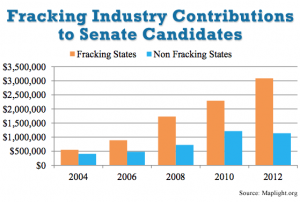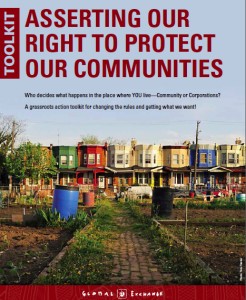By Shannon Biggs and Tish O’Dell
 Around the country, communities fighting fracking took their cause to the ballot box in the 2014 cycle — or tried to. But even before voters got a chance to voice their values some were preempted by nefariously oily means. In Butte County, CA the Western States Petroleum Association (WSPA) —California’s biggest lobby — found a “formatting error” on residents’ petition (meaning: a few words that should have been in bold face type on the petition). Although Frack-Free Butte County won in court, their ordinance was delayed beyond the election season.
Around the country, communities fighting fracking took their cause to the ballot box in the 2014 cycle — or tried to. But even before voters got a chance to voice their values some were preempted by nefariously oily means. In Butte County, CA the Western States Petroleum Association (WSPA) —California’s biggest lobby — found a “formatting error” on residents’ petition (meaning: a few words that should have been in bold face type on the petition). Although Frack-Free Butte County won in court, their ordinance was delayed beyond the election season.
For some places, the corporate dollars were too big to beat. In Santa Barbara California, Chevron, ExxonMobil and other corporate oil interests donated $7 million to drown local efforts, confuse voters and sink endorsements of the defeated Measure P. They were not alone.
As Common Cause has reported, Big Oil spent $267 million in the last 15 years on California lobbying and political contributions in Sacramento, the lion’s share of which coincides with fracking’s ugly rise as the short-term future of the fossil fuel industry. Others made it on to the ballot, only to find millions of dollars being poured into their local elections by Big Oil and Gas lobbies.
In Colorado, statehouse officials denied democracy by refusing to let communities vote on fracking. In August, Colorado’s Democratic Governor, John Hickenlooper convinced U.S. Rep. Jared Polis (D-Boulder) to pull his support for the citizen initiative process that would have enabled two anti-fracking initiatives on the ballot and ammended the state constitution to give more control over drilling and fracking to local communities.
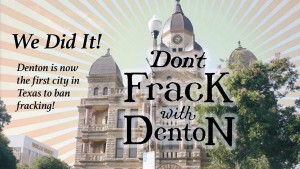
Victory denied? Less than 24 hours after their win, the state was already threatening to ignore Denton’s ban.
And in the most talked about local victory of the elections, residents of Denton, Texas, “the birthplace of fracking” overwhelmingly saw past the big lobby money to ban fracking on election day, only to have state officials and the Texas oil lobby sue to overturn the ordinance, telling residents that its “not their job” to approve or deny fracking permits in their town.
Even in San Benito California, CA, where residents passed a fracking ban despite the big lobby dollars, they may face a new post-election hurdle. “It’s a regulatory taking because it’s the regulation which is depriving property owners of the ability to extract value from their minerals or property,” Armen Nahabedian of Citadel Exploration, a company that’s developing an oil project in San Benito told KQED. “So it’s the duty of the county at this point to either allow people to continue to extract value from their property and not enforce the initiative or to compensate them accordingly with the fair market value of what they’ve been deprived of,” he says.
All of these point to a problem that is (unbelievably) even bigger than fracking—the state of democracy.
![photo[3]](https://globalexchange.org/wp-content/uploads/photo3-284x300-1-1.jpg) Two Communities Doing it Differently: In their Own Words
Two Communities Doing it Differently: In their Own Words
Two very different communities — Athens, Ohio and Mendocino County, CA also banned fracking this November, but did so by asserting their local right to make governing decisions, AND taking a stand against corporate violations of community rights “permitted” by state and federal governments.
On November 4, 2014, Mendocino County, known for wineries, farming redwood forests and the Pacific, became the first California community to adopt a Community Bill of Rights, placing the rights of people and their ecosystem above the interests of fracking companies. “Measure S”, put forward by the CRNMC (Community Rights Network of Mendocino County) declares the right of County residents to exercise their unalienable right to local community self-governance, the right of natural communities and ecosystems to exist and flourish, the right to clean water, air, and soil, and the right to be free from chemical trespass. Measure S prohibits fracking in Mendocino County because fracking is a clear violation of those rights. It passed with a 67% majority.
Mendocino small farmer and volunteer Jamie Lee said: “This is only the beginning of local self-governance for us up here in Mendocino, the first step of many toward changing the rules about ‘who decides’ what happens here. WE do.”
Peter Norris who helped spur the ordinance effort early on said, ” We reject the notion that corporations are people, (and that they have the constitutional right to plunder our resources for their profit), and also reject the unjust practice of state and federal preeminence over local governments.”
Charles Cresson Wood, local organizer for Mendocino Coast Transition Towns had this analysis: “Measure S was not the work of some hippie fringe group in the woods of Northern California. It was instead just another in a long string of communities across America who are standing up for their rights, and acknowledging in law the fact that we are all connected. It is not possible to simultaneously poison our precious drinking water with fracking chemicals and also have a vibrant agricultural sector in Mendocino County. So this new measure is only aligning the law with the laws of nature, is only recognizing that we are all in this together, and only acknowledging that we cannot allow short-term profit-driven activities of the fracking companies to harm the long-term health and wealth of our County.”
Baile Oakes, father, sculptor and land steward told us, “This is an important step along the way to true local self governance and to preserve the unalienable rights to a healthy ecosystem for all. Its local survival and laws to follow that rely on our community’s full support.”
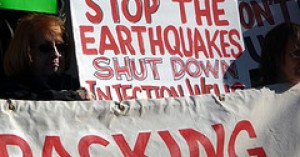
“Thanks to fracking, we call it Ohiofornia because of the earthquakes we have now” says Tish O’dell
In Athens, Ohio, election night 2014 was one of great celebration. Over a year and a half after beginning their attempt to pass a Community Bill of Rights in their community and being kept off the ballot last November, the residents of Athens won and they won big—78% big!
According to Dick McGinn, spokesperson for the community group, “With this overwhelming demonstration of support, Athens residents are sending a clear message to the oil and gas industry and to the state of Ohio: We have a right to clean air and water. We have a right to local self-governance. And there will be no fracking or frack waste disposal within our city.”
Athens now joins Yellow Springs, Oberlin, Mansfield, and Broadview Heights, OH, which also adopted Community Bills of Rights banning fracking, beginning in 2012. Upon hearing the news of Athens, OH, Mendocino County, CA and Denton, TX, many residents of Ohio had an opinion on community rights and the people asserting their right to local self governance:
Susie Beiersdorfer, Ohio Community Rights Network (OHCRN) Board Member said, “The state has permitted injection wells in our city and one, shut down but not plugged, has triggered over 550 earthquakes, the largest a 4.0 in December of 2011. In April 2014, a radioactive frack waste processing facility was state approved and located along the Mahoning River just north of downtown without the knowledge of any city or county official. Like the residents of Denton, we first went through the normal channels of trying to engage our local and state politicians and received mixed results; silence, willful ignorance or active opposition. Those of us working to pass rights-based bans, stand in solidarity with the citizens of Denton, as they enforce their citizens’ ban and hold the government, state agencies and industry accountable.”
Gwen B. Fischer, OHCRN Board Member Portage County and member of Concerned Citizens Ohio, told us, “When I read that despite the vote to ban in Denton, the Chair of the TX Railroad Commission, presumably a governmental agency that works for the people declare she will continue to issue permits for drilling in Denton, ‘because that’s her job’ that tells me that the inalienable rights of the citizens of Denton are being violated. [We] do not live in a democracy. Because that can (and has) happened everywhere local people have conflicts with corporate profit-making, we must recognize that none of us lives in a democracy.”
Sherry Fleming, OHCRN Board member Williams County, Ohio said, “The valiant efforts of Denton, TX, to prohibit fracking through the existing structure of law has collided with the misconception that citizens may act at the local level to protect their health and welfare from corporate threats. … We are one of many communities across the country, facing a corporate harm, which is exploring a new path; one that takes a civil rights approach, using rights based ordinances to protect the community and the surrounding environment, in order to expose the imbalance of power between corporations and communities, and to test existing law to create change where communities may act in their best interest.”
Residents are Looking to the future
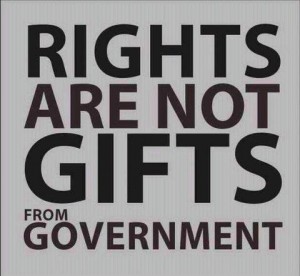 Lisa Kochheiser, OHCRN Board Member Wood County and Community Rights Activist, Bowling Green, OH “Community Bill of Rights are spreading not only across the state of Ohio but across the country in PA, NH, NM, CO, OR, and WA, as well. Community Rights is at work in many communities today, stopping corporate harm in the places where people live. Be the change – join the Community Rights Movement.”
Lisa Kochheiser, OHCRN Board Member Wood County and Community Rights Activist, Bowling Green, OH “Community Bill of Rights are spreading not only across the state of Ohio but across the country in PA, NH, NM, CO, OR, and WA, as well. Community Rights is at work in many communities today, stopping corporate harm in the places where people live. Be the change – join the Community Rights Movement.”
Charles Cresson Woods added, “There is one message that we can teach now, and that THERE IS HOPE, that the average person like you and me can make a significant difference, and that grass-roots activism can actually bring about significant change. The corporations would have us think that we can do nothing, and that we must accept the established order. They are doing their best to redefine freedom and other core American values in ways that suit their commercial purposes.”
Shan non Biggs is the Community Rights Director for Global Exchange, and the co-author of two books, Building the Green Economy: Success Stories from the Grass Roots and The Rights of Nature. Her current work focuses on assisting communities confronted by corporate harms to enact binding laws that place the rights of communities and nature above the claimed legal “rights” of corporations.
non Biggs is the Community Rights Director for Global Exchange, and the co-author of two books, Building the Green Economy: Success Stories from the Grass Roots and The Rights of Nature. Her current work focuses on assisting communities confronted by corporate harms to enact binding laws that place the rights of communities and nature above the claimed legal “rights” of corporations.
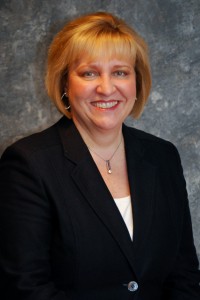 Tish O’Dell is the CELDF Ohio Community Organizer. Tish co-founded the grass-roots organization MADION (Mothers Against Drilling in Our Neighborhoods) in Broadview Heights, OH, that successfully campaigned to adopt a Home Rule Charter amendment creating a Community Bill of Rights banning oil/gas drilling and fracking.
Tish O’Dell is the CELDF Ohio Community Organizer. Tish co-founded the grass-roots organization MADION (Mothers Against Drilling in Our Neighborhoods) in Broadview Heights, OH, that successfully campaigned to adopt a Home Rule Charter amendment creating a Community Bill of Rights banning oil/gas drilling and fracking.
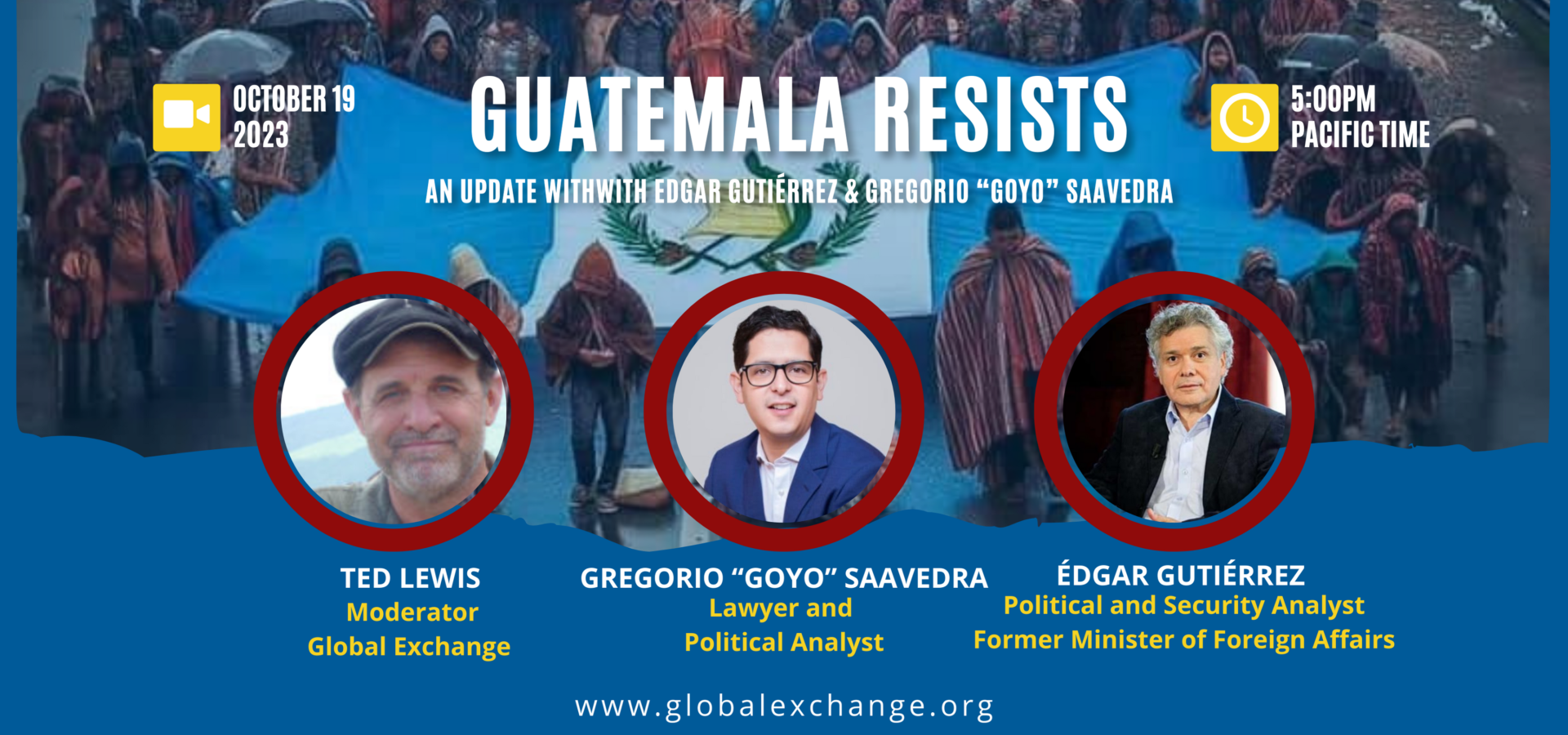
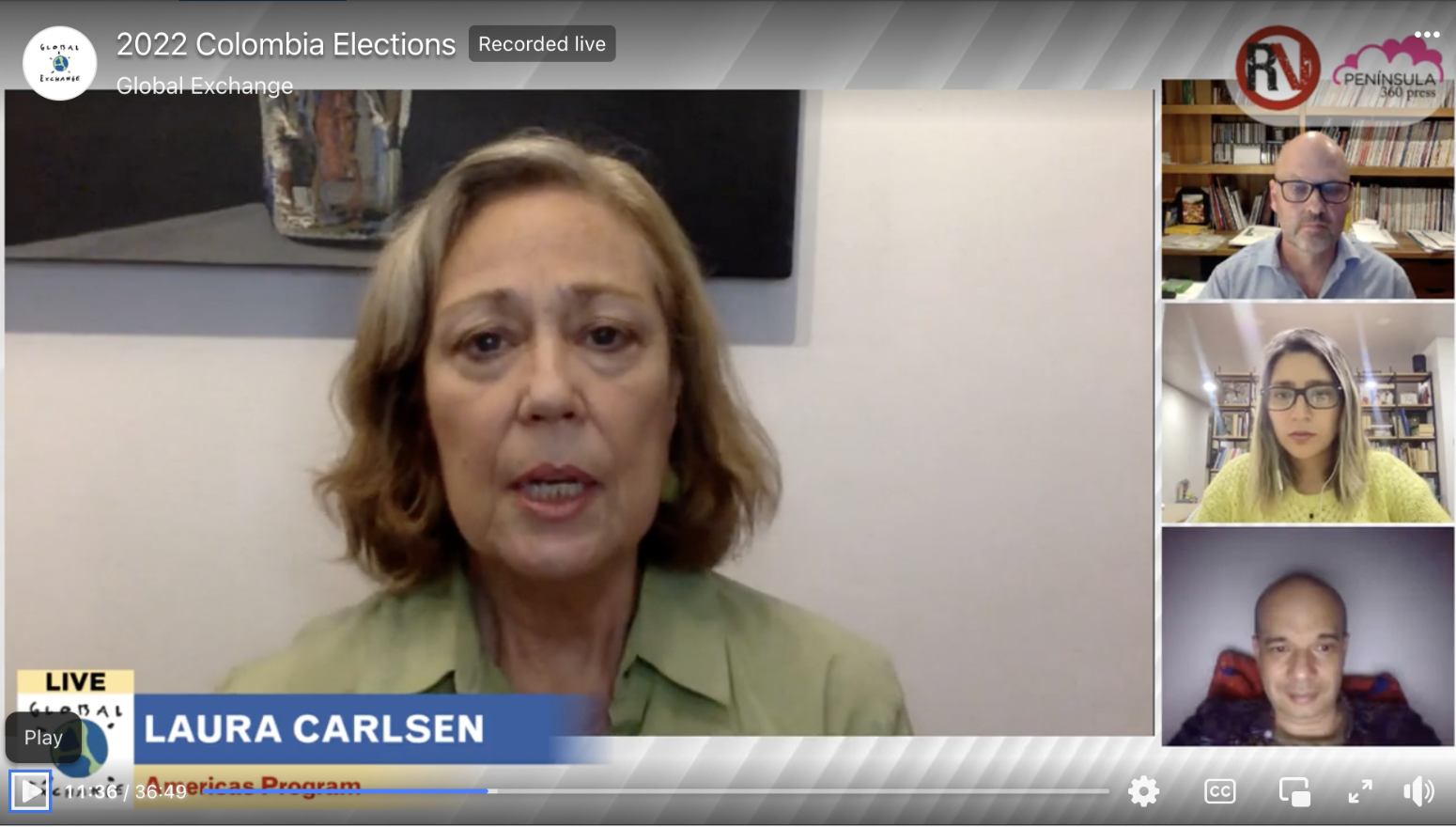
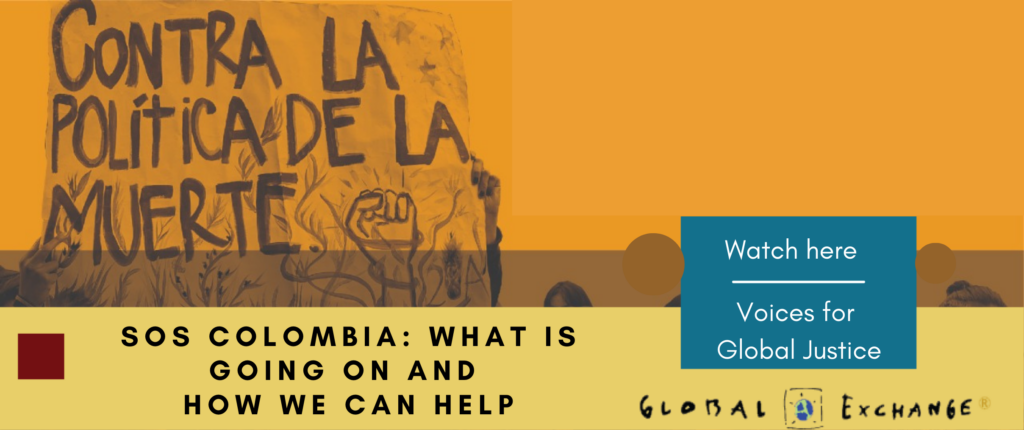
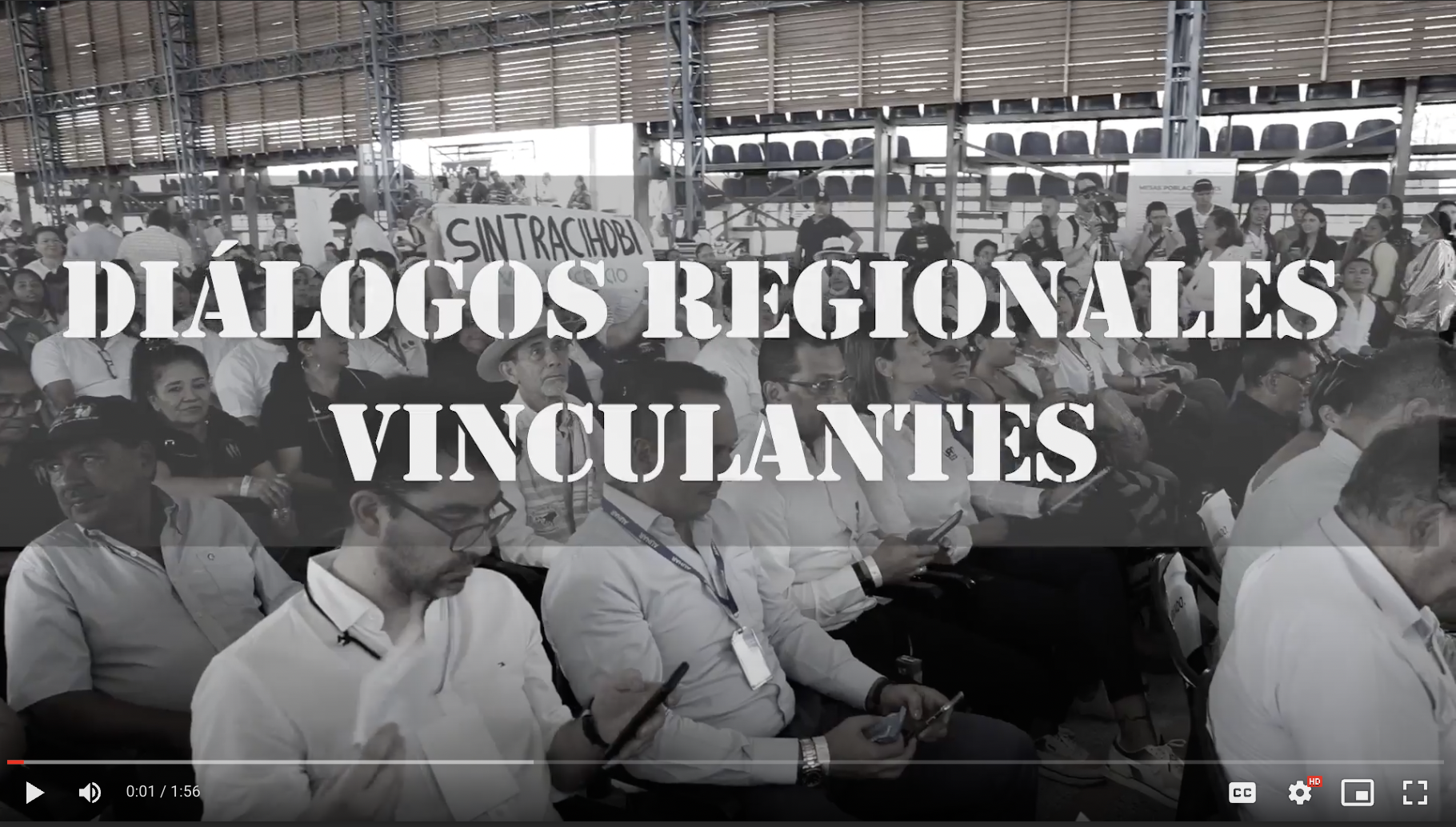
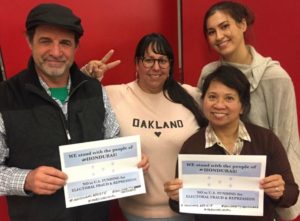 We are in close contact with our allies on the ground in Honduras.
We are in close contact with our allies on the ground in Honduras. 

![photo[3]](https://globalexchange.org/wp-content/uploads/photo3-284x300-1-1.jpg)




![photo[2]](https://globalexchange.org/wp-content/uploads/photo2-300x300-1-1.jpg)
![photo[3]](https://globalexchange.org/wp-content/uploads/photo3-284x300-2-1.jpg)
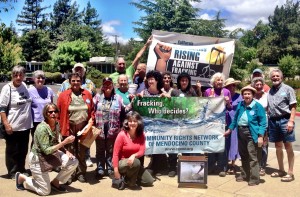


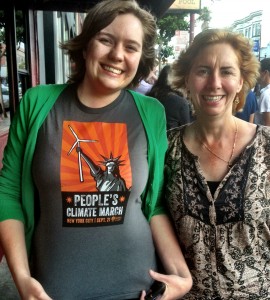
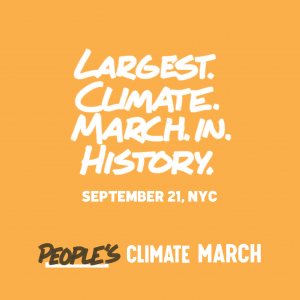

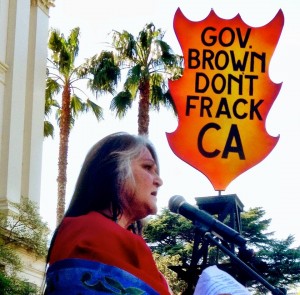
![photo[1]](https://globalexchange.org/wp-content/uploads/photo11-247x300-1-1.jpg)
